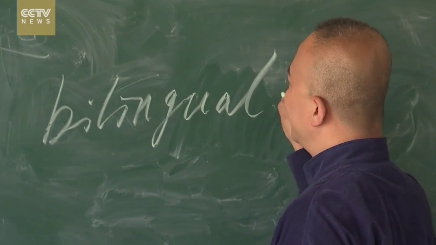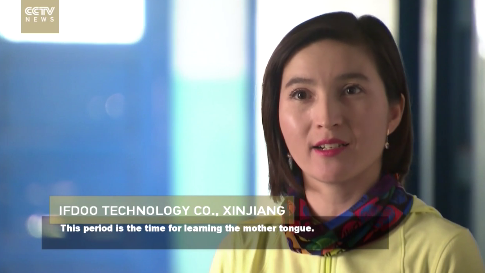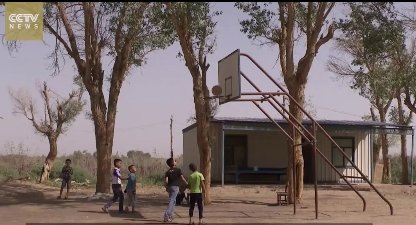
China
13:55, 09-Oct-2016
Bilingual education: A double challenge for educators and students in Xinjiang
Updated
10:19, 28-Jun-2018

Mandarin instruction for all Chinese is seen as a key to improve the livelihoods of Xinjiang’s ethnic minorities. One Uygur woman is determined to stick to the path of education to help students enjoy the best educational resources in remote areas.
CCTV reporter Han Bin together with Zaynura Arken, a department general manager from Ifdoo Technology Co. in Xinjiang, visited a school at Darya Boyi village, in Hotan County, southern Xinjiang – one of the farthest in the region.
Due to geographical and environmental disadvantages, the village is lagging far behind.
“Education is a long gradual process and you can’t see an immediate outcome. Upgrading teachers quality is a big project,” said Arken. “Only when teachers and parents jointly provide a comprehensive education, can students get better knowledge and capabilities.”

There, bilingual education is not really implemented. All courses are taught in Uygur.
“There’re so many special terms in mathematics. It’s hard to teach in Chinese,” said Mamtimin Mamtisdik, headmaster of the school.
As part of measures to boost economic development and maintain stability, Xinjiang is promoting the use of Mandarin. The government aims to ensure most children across the region have access to bilingual education by 2020. But so far, there have been some mixed results.

“I don’t think learning Chinese is to marginalize the Uygur language and culture. The process is to learn a kind of culture. It’s not just that Uygurs need to learn Chinese; Han Chinese are also learning Uygur,” said Arken. “This mutual learning experience is essential for culture exchanges.”
According to Arken, the disadvantages in education are obvious. The village is short of both hardware and software facilities.
“But what’s needed more is to change the mindset from being isolated to growing openness, as well as the urgency to improve teacher quality,” she added.
The most challenging issue is the shortage of teachers who speak both Mandarin and ethnic minority languages.

Does language learning help improve stability?
It certainly does. To learn a language is to learn a kind of culture, and help reduce misunderstandings and reach common understanding between cultures.
“I hope my experience is shared, that students can walk out of the village to see a greater world and bring back gifts from outside, and change the destiny of their children,” noted Arken.

SITEMAP
Copyright © 2018 CGTN. Beijing ICP prepared NO.16065310-3
Copyright © 2018 CGTN. Beijing ICP prepared NO.16065310-3